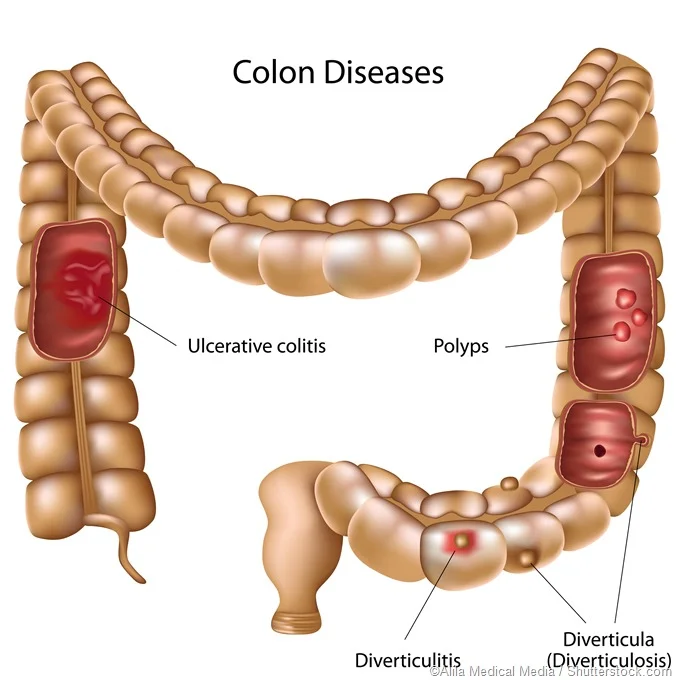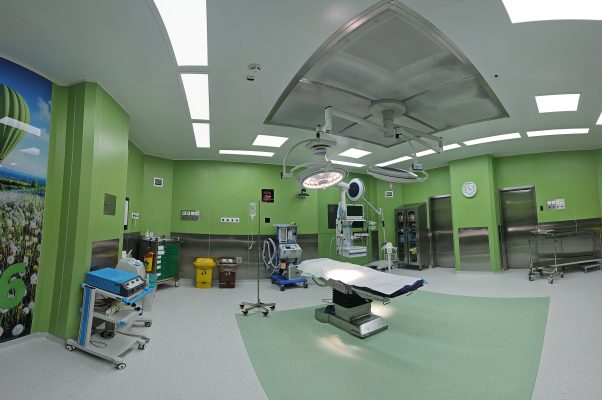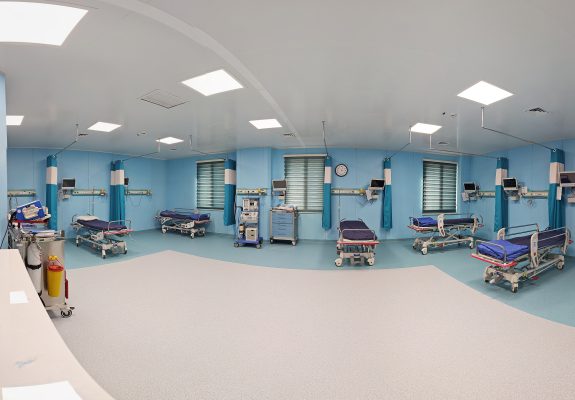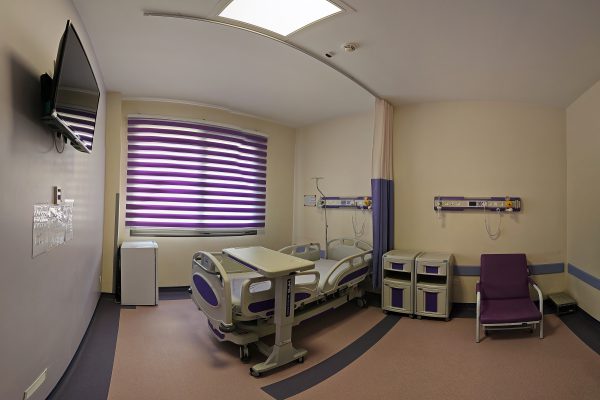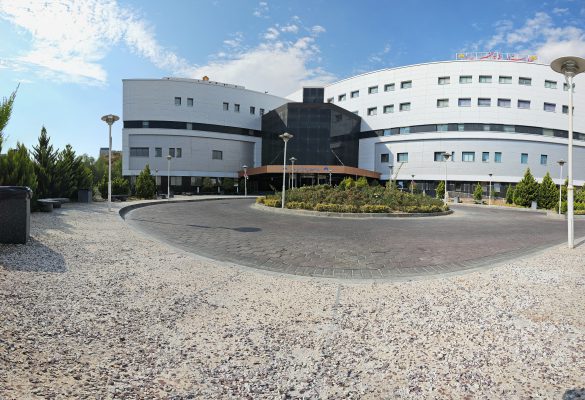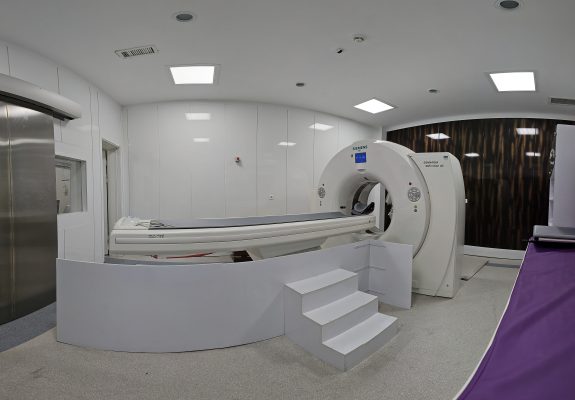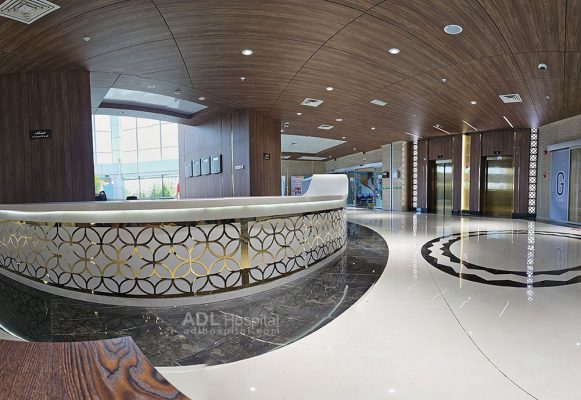Colorectal surgery in Iran
Colorectal surgery in Iran is a surgical specialty that focuses on the surgical treatment of diseases of the colon, rectum, and anus. Colorectal surgeons are specially trained to perform a variety of procedures, including:
- Colonoscopy: A procedure in which a thin, flexible tube with a camera on the end is inserted into the colon to examine the lining of the colon and rectum.
- Sigmoidoscopy: A procedure in which a thin, flexible tube with a camera on the end is inserted into the rectum and sigmoid colon to examine the lining of these areas.
- Colon and rectal cancer surgery: Surgery to remove cancerous tumors from the colon or rectum.
- Inflammatory bowel disease (IBD) surgery: Surgery to treat Crohn’s disease or ulcerative colitis, two types of IBD.
- Diverticular disease surgery: Surgery to treat diverticular disease, a condition in which small pouches form in the wall of the colon.
- Hemorrhoidectomy: Surgery to remove hemorrhoids, which are swollen veins in the anus.
- Fistulotomy: Surgery to treat a fistula, which is an abnormal connection between two organs or body cavities.
- Abscess drainage: Surgery to drain an abscess, which is a collection of pus in a body cavity.
Colorectal surgery in Iran is often performed laparoscopically, a minimally invasive technique that uses small incisions and a camera to visualize the surgical site. Laparoscopic surgery has several advantages over traditional open surgery, including less pain, a shorter hospital stay, and a faster recovery time.
Colorectal surgeons work closely with other healthcare professionals, such as gastroenterologists, oncologists, and radiologists, to provide comprehensive care for patients with colorectal diseases.
What to expect from Colorectal surgery
What to expect from colorectal surgery in Iran will depend on the type of surgery you are having and your individual circumstances. However, there are some general things you can expect:
Before surgery:
- You will meet with your colorectal surgeon to discuss the surgery and your expectations.
- You will be given instructions on how to prepare for surgery, such as fasting for a certain number of hours beforehand.
- You may need to have some tests done, such as blood tests or imaging tests.
During surgery:
- You will be given general anesthesia, which will put you to sleep during the surgery.
- The surgeon will make one or more incisions in your abdomen or perineum (the area between the anus and the genitals).
- The surgeon will perform the surgery, which may involve removing a portion of your colon or rectum, repairing a fistula, or draining an abscess.
- Once the surgery is complete, the surgeon will close the incisions with stitches or staples.
After surgery:
- You will be taken to the recovery room, where you will be monitored for any complications.
- You may experience some pain, swelling, and bruising around the incision site.
- You may have a temporary ileostomy or colostomy, which is a surgical opening in the abdomen that allows stool to bypass the rectum.
- You will be given pain medication and antibiotics to help you recover.
- You will be encouraged to get up and move around as soon as possible to help prevent blood clots and promote healing.
- You will be given instructions on how to care for your incision and manage your pain.
- You will need to follow up with your colorectal surgeon regularly to monitor your recovery and ensure that there are no complications.
The length of your hospital stay will depend on the type of surgery you had and your individual recovery. Most people are able to go home within a few days after surgery.
Recovery from colorectal surgery can take several weeks or months. It is important to be patient and follow your doctor’s instructions carefully.
Recovery after Colorectal surgery
Recovery after colorectal surgery can take several weeks or months, depending on the type of surgery you had and your individual circumstances. It is important to be patient and follow your doctor’s instructions carefully.
Here are some general tips for recovering from colorectal surgery:
- Get plenty of rest. Your body needs time to heal, so make sure you are getting enough sleep.
- Eat a healthy diet. Eating a healthy diet will help you to heal faster and reduce your risk of complications. Avoid foods that are high in fiber, gas-producing foods, and spicy foods.
- Drink plenty of fluids. Staying hydrated is important for your overall health and will help to prevent constipation.
- Take your medications as directed. Your doctor will prescribe pain medication and antibiotics to help you recover. Be sure to take your medications as directed, even if you are feeling better.
- Keep your incision clean and dry. Wash your incision gently with soap and water and pat it dry. Avoid using harsh chemicals or scrubbing the incision.
- Avoid strenuous activity. Strenuous activity can put strain on your incision and slow down your recovery. Avoid lifting heavy objects or doing any activities that involve twisting or bending.
- Follow up with your doctor regularly. Your doctor will need to see you regularly to monitor your recovery and check for any complications.
Here are some specific tips for recovering from different types of colorectal surgery in Iran :
- After a colonoscopy or sigmoidoscopy: You may experience some bloating, gas, and abdominal pain after a colonoscopy or sigmoidoscopy. These symptoms should go away within a few days.
- After colon and rectal cancer surgery: You may experience some pain, swelling, and bruising around the incision site. You may also have a temporary ileostomy or colostomy. You will need to follow your doctor’s instructions carefully on how to care for your ileostomy or colostomy.
- After inflammatory bowel disease (IBD) surgery: You may experience some abdominal pain, cramping, and diarrhea after IBD surgery. These symptoms should improve over time as your bowels heal.
- After diverticular disease surgery: You may experience some pain, swelling, and bruising around the incision site. You will need to follow your doctor’s instructions on how to care for your incision.
If you have any concerns about your recovery, be sure to talk to your doctor.
Right candidate for Colorectal surgery
The right candidates for colorectal surgery in Iran are people who have a condition that can be treated or improved with surgery. This may include people with:
Colon or rectal cancer
Inflammatory bowel disease (IBD), such as Crohn’s disease or ulcerative colitis
Diverticular disease
Hemorrhoids
Fistula
Abscess
Other benign conditions of the colon or rectum
Colorectal surgery is not right for everyone. Some people may be too high-risk for surgery, such as people with severe heart or lung disease. Others may have a condition that can be treated with medication or other non-surgical methods.
Your colorectal surgeon will work with you to determine if surgery is the best option for you. They will consider your overall health, the severity of your condition, and your preferences.
Here are some factors that may make you a good candidate for colorectal surgery:
You are in good overall health and have no major medical conditions that would increase your risk of complications from surgery.
You have a condition that is causing significant symptoms or complications, such as pain, bleeding, or obstruction.
You have tried other treatments, such as medication or lifestyle changes, but they have not been successful.
You are willing to follow your doctor’s instructions before and after surgery.
If you are considering colorectal surgery, be sure to talk to your doctor about the risks and benefits of surgery and whether it is the right option for you.
Conditions that may be treated with colorectal surgery
Colorectal surgery can be used to treat a variety of conditions, including:
- Colon and rectal cancer: Colorectal surgery is the most common treatment for colon and rectal cancer. The goal of surgery is to remove the cancerous tumor and any nearby lymph nodes.
- Inflammatory bowel disease (IBD): IBD is a chronic condition that causes inflammation of the digestive tract. Colorectal surgery may be necessary to treat complications of IBD, such as strictures (narrowing of the bowel), fistulas, and abscesses.
- Diverticular disease: Diverticular disease is a condition in which small pouches form in the wall of the colon. Colorectal surgery may be necessary to treat complications of diverticular disease, such as bleeding, perforation, and obstruction.
- Hemorrhoids: Hemorrhoids are swollen veins in the anus. Colorectal surgery may be necessary to treat severe hemorrhoids that do not respond to other treatments.
- Fistula: A fistula is an abnormal connection between two organs or body cavities. Colorectal surgery may be necessary to treat fistulas that do not respond to other treatments.
- Abscess: An abscess is a collection of pus in a body cavity. Colorectal surgery may be necessary to drain an abscess that does not respond to other treatments.
Other factors that may affect your candidacy for colorectal surgery
In addition to your overall health and the severity of your condition, your candidacy for colorectal surgery may also be affected by other factors, such as:
Your age
Your weight
Your smoking status
Your alcohol use
Your drug use
Your mental health
Your social support system
Your colorectal surgeon will consider all of these factors when determining whether or not you are a good candidate for surgery.
Type of colorectal surgery
There are many different types of colorectal surgery, depending on the condition being treated. Some of the most common types of colorectal surgery in Iran include:
- Colectomy: Colectomy is the surgical removal of all or part of the colon. It is the most common type of colorectal surgery and is used to treat a variety of conditions, including colon cancer, diverticular disease, and inflammatory bowel disease.
- Proctectomy: Proctectomy is the surgical removal of the rectum. It is used to treat rectal cancer, severe ulcerative colitis, and other conditions that affect the rectum.
- Colostomy: Colostomy is a surgical procedure that creates an opening in the abdomen (called a stoma) that allows stool to bypass the rectum. Colostomies are often temporary, but they can also be permanent.
- Ileostomy: Ileostomy is a surgical procedure that creates an opening in the abdomen that allows stool to bypass the colon and rectum. Ileostomies are usually permanent.
- Hemorrhoidectomy: Hemorrhoidectomy is the surgical removal of hemorrhoids. It is used to treat severe hemorrhoids that do not respond to other treatments.
- Fistulotomy: Fistulotomy is the surgical repair of a fistula. It is used to treat fistulas that do not respond to other treatments.
- Abscess drainage: Abscess drainage is the surgical removal of pus from an abscess. It is used to treat abscesses that do not respond to other treatments.
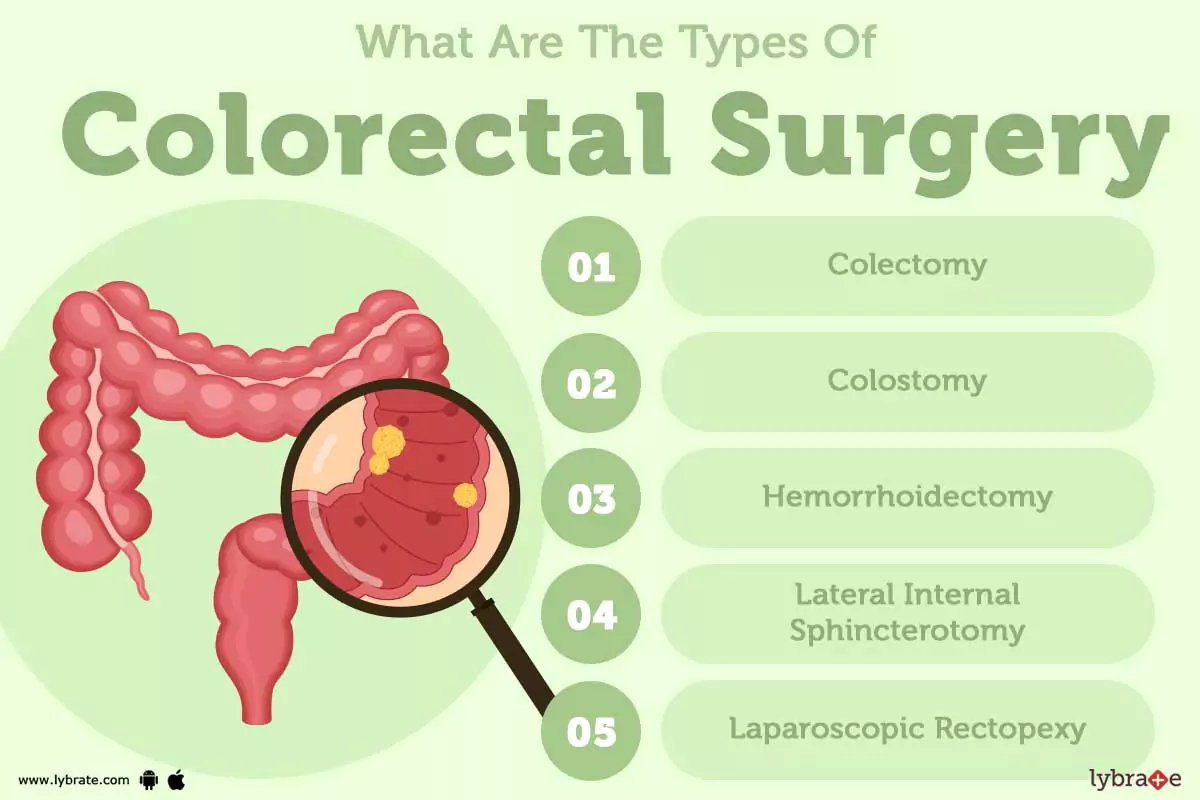
In addition to these common types of colorectal surgery, there are also a number of other specialized procedures that can be used to treat specific conditions. Your colorectal surgeon will work with you to determine the best type of surgery for your individual needs.
Minimally invasive colorectal surgery
Many colorectal surgeries can now be performed using minimally invasive techniques, such as laparoscopy and robotic surgery. Minimally invasive surgery offers a number of advantages over traditional open surgery, including:
Smaller incisions
Less pain
Shorter hospital stay
Faster recovery time
Reduced risk of complications
If you are a candidate for minimally invasive colorectal surgery, your surgeon will discuss the benefits and risks of this approach with you.
Laparoscopic colorectal surgery
Laparoscopic colorectal surgery in Iran is a type of minimally invasive surgery that uses small incisions and a camera to perform surgery on the colon and rectum. Laparoscopic colorectal surgery is also known as keyhole surgery or minimally invasive colorectal surgery (MICS).
During laparoscopic colorectal surgery in Iran , the surgeon makes several small incisions in the abdomen. A camera is then inserted into one of the incisions, and the surgeon uses long, thin instruments inserted through the other incisions to perform the surgery. The camera sends images of the surgical site to a monitor in the operating room, which the surgeon uses to guide the surgery.
Laparoscopic colorectal surgery can be used to treat a variety of conditions, including:
Colon cancer
Rectal cancer
Diverticular disease
Inflammatory bowel disease (IBD)
Hemorrhoids
Fistula
Abscess
Laparoscopic colorectal surgery offers a number of advantages over traditional open surgery, including:
Smaller incisions
Less pain
Shorter hospital stay
Faster recovery time
Reduced risk of complications
If you are a candidate for laparoscopic colorectal surgery, your surgeon will discuss the benefits and risks of this approach with you.
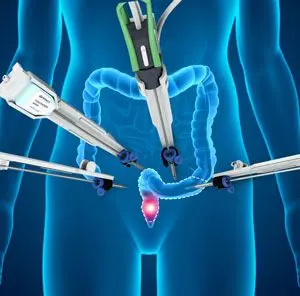
Benefits of laparoscopic colorectal surgery
The benefits of laparoscopic colorectal surgery over traditional open surgery include:
- Smaller incisions: Laparoscopic colorectal surgery is performed through small incisions, typically ranging from 1 to 2 centimeters in length. This is in contrast to traditional open surgery, which requires a large incision in the abdomen.
- Less pain: Laparoscopic colorectal surgery is associated with less pain than traditional open surgery. This is because the smaller incisions cause less tissue damage.
- Shorter hospital stay: Patients who undergo laparoscopic colorectal surgery typically have a shorter hospital stay than patients who undergo traditional open surgery. This is because laparoscopic surgery is less invasive and patients recover more quickly.
- Faster recovery time: Patients who undergo laparoscopic colorectal surgery typically have a faster recovery time than patients who undergo traditional open surgery. This is because laparoscopic surgery causes less tissue damage and patients are able to resume their normal activities sooner.
- Reduced risk of complications: Laparoscopic colorectal surgery is associated with a reduced risk of complications compared to traditional open surgery. This is because laparoscopic surgery is less invasive and there is less risk of infection and other complications.
Risks of laparoscopic colorectal surgery
The risks of laparoscopic colorectal surgery are similar to the risks of traditional open surgery, and include:
Bleeding
Infection
Blood clots
Damage to nearby organs
Hernia
Recurrence of the condition
However, the risks of laparoscopic colorectal surgery are generally lower than the risks of traditional open surgery.
Who is a candidate for laparoscopic colorectal surgery?
Laparoscopic colorectal surgery is not appropriate for everyone. Some people may be too high-risk for laparoscopic surgery, such as people with severe heart or lung disease. Others may have a condition that is not suitable for laparoscopic surgery.
Your colorectal surgeon will work with you to determine if you are a candidate for laparoscopic colorectal surgery in Iran . They will consider your overall health, the severity of your condition, and your preferences.
Conclusion
Laparoscopic colorectal surgery in Iran is a safe and effective alternative to traditional open surgery for a variety of colorectal conditions. Laparoscopic surgery offers a number of advantages over traditional open surgery, including smaller incisions, less pain, a shorter hospital stay, a faster recovery time, and a reduced risk of complications.
If you want to operate in Tehran Adl Hospital, click the button below and follow the steps


